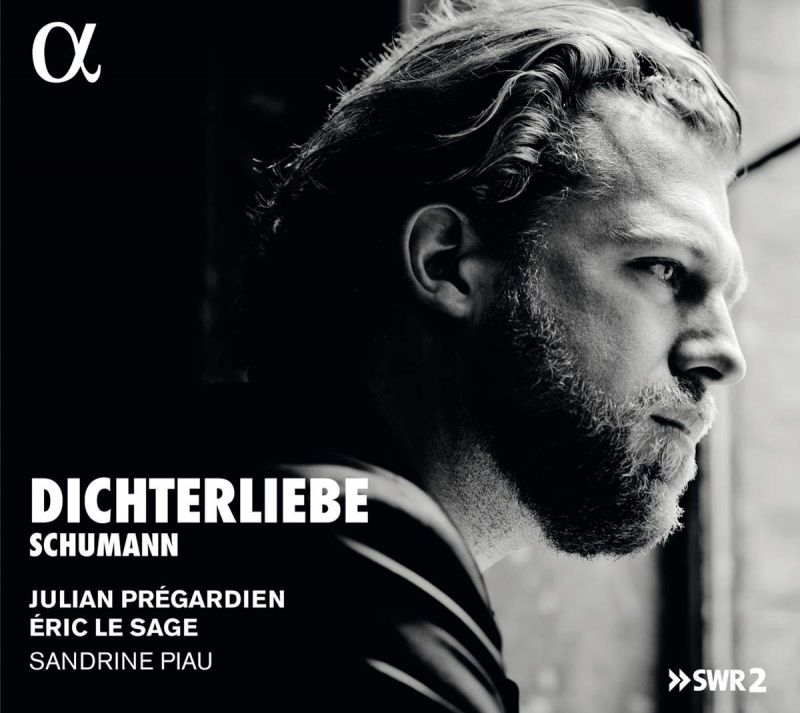R & C SCHUMANN Dichterliebe (Julian Prégardien)
View record and artist detailsRecord and Artist Details
Genre:
Vocal
Label: Alpha
Magazine Review Date: 07/2019
Media Format: CD or Download
Media Runtime: 66
Mastering:
DDD
Catalogue Number: ALPHA457

Author: David Patrick Stearns
The folk song ‘Wenn ich ein Vöglein wär’ is included in versions by both composers: Clara’s is simple, Robert’s spun into something more emotionally complex that eventually landed in his opera Genoveva. If the Op 142 ‘Mein Wagen rollet langsam’ seems a cut above many of these odds and ends, it’s an outtake from Dichterliebe in which hallucinatory imagery and eerily passive piano motifs are almost top-drawer Schumann.
The disc’s main event, of course, is Dichterliebe, and it’s a highly committed performance that’s fully realised on its own terms – though not the complete experience of Fritz Wunderlich’s wounded poet (DG, 6/66) or Dietrich Fischer-Dieskau’s tragic hero (Sony Classical). Pregardien brings to the music a superb command of German, a lyrical line undistorted by vibrato (has there been anything quite like it in Schumann since Felicity Lott?) and a readiness to embrace declaratory moments beyond the typical poise of Lieder recitals. His finest moments are the contrasting ‘Ich will meine Seele tauchen’ with a voice full of warmth and sweetness, and the chilling rage that follows in ‘Im Rhein, im heiligen Strome’. Some expressive extremes have a loose-cannon quality – Schumannesque in a way but potentially annoying on repeated hearings.
Here and there, Prégardien reinstates word-settings from previous Dichterliebe drafts, none revelatory but accommodating his temperamental volatility. He adds unobtrusive but expressive ornaments here and there, plus a ghostly effect in No 4, ‘Wenn ich in deine Augen seh’: in the line ‘ich liebe dich’, he is shadowed by a female voice (presumably Piau’s), since the line does quote the protagonist’s female loved one. Harmless additions, these. Considering that Prégardien and Le Sage have been interpolating bits of Kreisleriana into this brilliantly sequenced song-cycle (Clara was known to do that, which doesn’t make it right), one is grateful that their interventionist sensibility stopped where it did. The 1856 Julius Blüthner piano used by Le Sage has greater colouristic possibilities than the 1837 Érard used by Andreas Staier in his disc of Schumann violin sonatas (Harmonia Mundi, 10/10). Poetic effects in the lyrical right hand are particularly luminous but the rhythmic left-hand-writing feels ham-fisted. Compared to Le Sage’s past Schumann recordings on more modern instruments, however, he seems a bit inhibited here.
Discover the world's largest classical music catalogue with Presto Music.

Gramophone Digital Club
- Digital Edition
- Digital Archive
- Reviews Database
- Full website access
From £8.75 / month
Subscribe
Gramophone Full Club
- Print Edition
- Digital Edition
- Digital Archive
- Reviews Database
- Full website access
From £11.00 / month
Subscribe
If you are a library, university or other organisation that would be interested in an institutional subscription to Gramophone please click here for further information.




